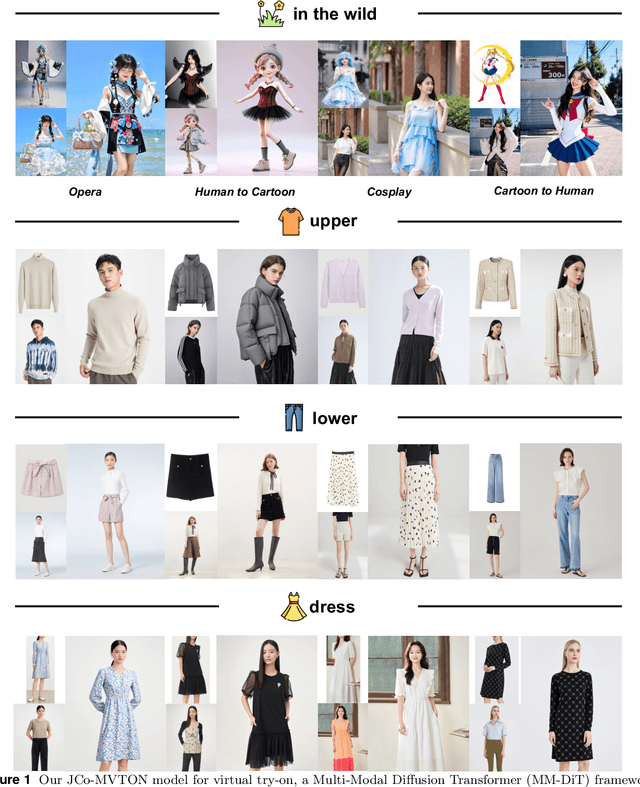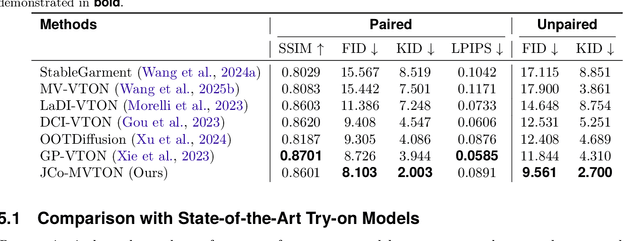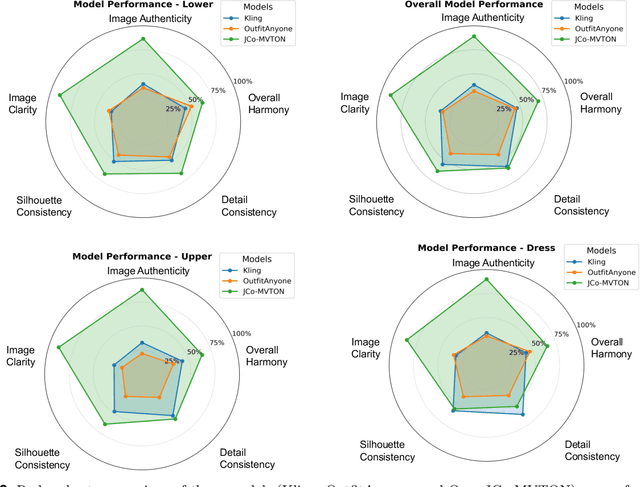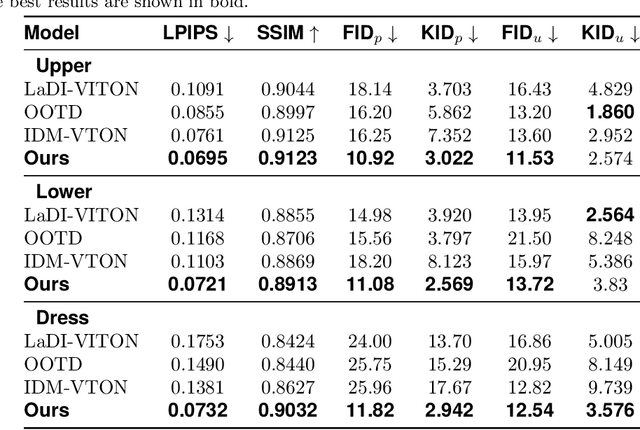Chenyu Zhu
I2E: From Image Pixels to Actionable Interactive Environments for Text-Guided Image Editing
Jan 07, 2026Abstract:Existing text-guided image editing methods primarily rely on end-to-end pixel-level inpainting paradigm. Despite its success in simple scenarios, this paradigm still significantly struggles with compositional editing tasks that require precise local control and complex multi-object spatial reasoning. This paradigm is severely limited by 1) the implicit coupling of planning and execution, 2) the lack of object-level control granularity, and 3) the reliance on unstructured, pixel-centric modeling. To address these limitations, we propose I2E, a novel "Decompose-then-Action" paradigm that revisits image editing as an actionable interaction process within a structured environment. I2E utilizes a Decomposer to transform unstructured images into discrete, manipulable object layers and then introduces a physics-aware Vision-Language-Action Agent to parse complex instructions into a series of atomic actions via Chain-of-Thought reasoning. Further, we also construct I2E-Bench, a benchmark designed for multi-instance spatial reasoning and high-precision editing. Experimental results on I2E-Bench and multiple public benchmarks demonstrate that I2E significantly outperforms state-of-the-art methods in handling complex compositional instructions, maintaining physical plausibility, and ensuring multi-turn editing stability.
JCo-MVTON: Jointly Controllable Multi-Modal Diffusion Transformer for Mask-Free Virtual Try-on
Aug 25, 2025



Abstract:Virtual try-on systems have long been hindered by heavy reliance on human body masks, limited fine-grained control over garment attributes, and poor generalization to real-world, in-the-wild scenarios. In this paper, we propose JCo-MVTON (Jointly Controllable Multi-Modal Diffusion Transformer for Mask-Free Virtual Try-On), a novel framework that overcomes these limitations by integrating diffusion-based image generation with multi-modal conditional fusion. Built upon a Multi-Modal Diffusion Transformer (MM-DiT) backbone, our approach directly incorporates diverse control signals -- such as the reference person image and the target garment image -- into the denoising process through dedicated conditional pathways that fuse features within the self-attention layers. This fusion is further enhanced with refined positional encodings and attention masks, enabling precise spatial alignment and improved garment-person integration. To address data scarcity and quality, we introduce a bidirectional generation strategy for dataset construction: one pipeline uses a mask-based model to generate realistic reference images, while a symmetric ``Try-Off'' model, trained in a self-supervised manner, recovers the corresponding garment images. The synthesized dataset undergoes rigorous manual curation, allowing iterative improvement in visual fidelity and diversity. Experiments demonstrate that JCo-MVTON achieves state-of-the-art performance on public benchmarks including DressCode, significantly outperforming existing methods in both quantitative metrics and human evaluations. Moreover, it shows strong generalization in real-world applications, surpassing commercial systems.
Marco-Bench-MIF: On Multilingual Instruction-Following Capability of Large Language Models
Jul 16, 2025Abstract:Instruction-following capability has become a major ability to be evaluated for Large Language Models (LLMs). However, existing datasets, such as IFEval, are either predominantly monolingual and centered on English or simply machine translated to other languages, limiting their applicability in multilingual contexts. In this paper, we present an carefully-curated extension of IFEval to a localized multilingual version named Marco-Bench-MIF, covering 30 languages with varying levels of localization. Our benchmark addresses linguistic constraints (e.g., modifying capitalization requirements for Chinese) and cultural references (e.g., substituting region-specific company names in prompts) via a hybrid pipeline combining translation with verification. Through comprehensive evaluation of 20+ LLMs on our Marco-Bench-MIF, we found that: (1) 25-35% accuracy gap between high/low-resource languages, (2) model scales largely impact performance by 45-60% yet persists script-specific challenges, and (3) machine-translated data underestimates accuracy by7-22% versus localized data. Our analysis identifies challenges in multilingual instruction following, including keyword consistency preservation and compositional constraint adherence across languages. Our Marco-Bench-MIF is available at https://github.com/AIDC-AI/Marco-Bench-MIF.
Dynamic Early Exit in Reasoning Models
Apr 22, 2025Abstract:Recent advances in large reasoning language models (LRLMs) rely on test-time scaling, which extends long chain-of-thought (CoT) generation to solve complex tasks. However, overthinking in long CoT not only slows down the efficiency of problem solving, but also risks accuracy loss due to the extremely detailed or redundant reasoning steps. We propose a simple yet effective method that allows LLMs to self-truncate CoT sequences by early exit during generation. Instead of relying on fixed heuristics, the proposed method monitors model behavior at potential reasoning transition points (e.g.,"Wait" tokens) and dynamically terminates the next reasoning chain's generation when the model exhibits high confidence in a trial answer. Our method requires no additional training and can be seamlessly integrated into existing o1-like reasoning LLMs. Experiments on multiple reasoning benchmarks MATH-500, AMC 2023, GPQA Diamond and AIME 2024 show that the proposed method is consistently effective on deepseek-series reasoning LLMs, reducing the length of CoT sequences by an average of 31% to 43% while improving accuracy by 1.7% to 5.7%.
Test-Time Backdoor Detection for Object Detection Models
Mar 19, 2025Abstract:Object detection models are vulnerable to backdoor attacks, where attackers poison a small subset of training samples by embedding a predefined trigger to manipulate prediction. Detecting poisoned samples (i.e., those containing triggers) at test time can prevent backdoor activation. However, unlike image classification tasks, the unique characteristics of object detection -- particularly its output of numerous objects -- pose fresh challenges for backdoor detection. The complex attack effects (e.g., "ghost" object emergence or "vanishing" object) further render current defenses fundamentally inadequate. To this end, we design TRAnsformation Consistency Evaluation (TRACE), a brand-new method for detecting poisoned samples at test time in object detection. Our journey begins with two intriguing observations: (1) poisoned samples exhibit significantly more consistent detection results than clean ones across varied backgrounds. (2) clean samples show higher detection consistency when introduced to different focal information. Based on these phenomena, TRACE applies foreground and background transformations to each test sample, then assesses transformation consistency by calculating the variance in objects confidences. TRACE achieves black-box, universal backdoor detection, with extensive experiments showing a 30% improvement in AUROC over state-of-the-art defenses and resistance to adaptive attacks.
Towards Lightweight, Adaptive and Attribute-Aware Multi-Aspect Controllable Text Generation with Large Language Models
Feb 19, 2025Abstract:Multi-aspect controllable text generation aims to control text generation in attributes from multiple aspects, making it a complex but powerful task in natural language processing. Supervised fine-tuning methods are often employed for this task due to their simplicity and effectiveness. However, they still have some limitations: low rank adaptation (LoRA) only fine-tunes a few parameters and has suboptimal control effects, while full fine-tuning (FFT) requires significant computational resources and is susceptible to overfitting, particularly when data is limited. Moreover, existing works typically train multi-aspect controllable text generation models using only single-aspect annotated data, which results in discrepancies in data distribution; at the same time, accurately generating text with specific attributes is a challenge that requires strong attribute-aware capabilities. To address these limitations, we propose a lightweight, adaptive and attribute-aware framework for multi-aspect controllable text generation. Our framework can dynamically adjust model parameters according to different aspects of data to achieve controllable text generation, aiming to optimize performance across multiple aspects. Experimental results show that our framework outperforms other strong baselines, achieves state-of-the-art performance, adapts well to data discrepancies, and is more accurate in attribute perception.
 Add to Chrome
Add to Chrome Add to Firefox
Add to Firefox Add to Edge
Add to Edge